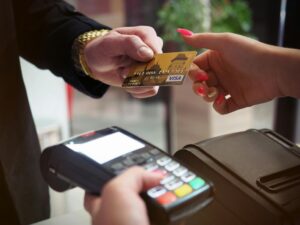Credit Cards Explained in Plain Language

A credit card, when used properly, is a convenient and safe payment option that may help you spread the expense of large purchases over time. However, credit cards may be expensive and lead to a cycle of debt if you simply make the minimum payment or rack up a large balance that you can’t pay off.
What is the function of a credit card?
A credit card will let you spend up to your available credit. Every month, you will get a statement detailing your expenditures. It’s best to make it a habit to pay off your monthly bill in full. However, the bare minimum must be paid back. Provider-set minimums typically range from 1% to 5% of the debt, plus interest, default fees, and yearly fees. Around 3 to 5 percent is to be expected. Maybe it is a pound sterling sum of a minimum £5.
If you use your cards for making a cash withdrawal, you will be charged interest on any amount you take over what you originally charged. Interest, generally retroactive to the time of purchase, will be added to your balance if you don’t pay it off in full.
Credit card essentials you should know
Prior to actually enrolling for and to use a credit or debit card, there are a few things you should bear in mind. As part of the application process, the credit card company will look thoroughly into your credit history. Your credit report will be checked as part of this process. Applying for credit will go more smoothly if you have a high credit score. Further, it may help you qualify for cards with the best rewards and introductory APRs.
A hard inquiry will be recorded in your credit history and may lower your score. Some financial institutions conduct preliminary “soft checks” on applicants. Your credit score and credit report will not be affected by this sort of query. It tells you how likely you are to get your credit application approved.
Will I benefit from using a credit card?
Do not acquire a credit card if you have a hard time keeping track of your finances as it is or if you fear you could be tempted to spend more than you have. Do you feel safe with your monthly budget and your ability to pay off any outstanding balances? Then, using a credit card to make immediate purchases and spread out payments over time is a viable option.
The benefits of using credit cards
Credit cards are more widely accepted than charge cards or prepaid cards and are both portable and simple to use. Better protection than cash, as you may simply report a lost or stolen card by phone. You have a better chance of recovering funds if they are fraudulently utilized rather than stolen. It’s possible that this method of borrowing money might save money over time, since interest would be waived if the amount were paid in full every month. Though, with certain cards, you get an introductory period when you pay no interest on your transactions. However, it’s crucial that you know how long your interest-free period lasts and whether or not certain purchases are excluded.
Credit card users have protections under Section 75 for most transactions above £100 as well as up until £30,000. This means that even if you merely made a deposit by credit card, the credit company should refund the expense if the travel operator closes down during your trip. Fraud claim is not a statutory entitlement, but it may provide further protection for your purchases in the event that section 75 does not apply.









